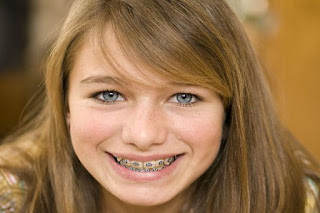 In our childrens dentistry office, we know that the foundation for a lifetime of healthy permanent teeth is laid during the first years of life. It is exceedingly important to instill good oral hygiene habits very early on. This routine should involve regular visits to a kid's dentist. In fact, the American Academy of Pediatric Dentistry (AAPD) recommends that every child should first visit their dentist within six months from the time they have their first tooth.
In our childrens dentistry office, we know that the foundation for a lifetime of healthy permanent teeth is laid during the first years of life. It is exceedingly important to instill good oral hygiene habits very early on. This routine should involve regular visits to a kid's dentist. In fact, the American Academy of Pediatric Dentistry (AAPD) recommends that every child should first visit their dentist within six months from the time they have their first tooth.
Unfortunately, the AAPD also says 50% of all children have never visited a dentist. Which is probably why an estimated 20 percent of all children in the US, under the age of 6, suffer from some level of early childhood caries. And there is good reason for this... The enamel on the surface of primary teeth is not as densely mineralized as the enamel on the surface of permanent teeth, which makes them more susceptible to cavities.
As a childrens dentistry office, we are an important weapon in the fight against childhood caries. We specialize in the oral health care of children from birth through adolescence. Over and above the usual four years of dental school, we have additional training, and therefore, have the qualifications and the know how to take care of children's teeth and gums through the various stages of childhood.
Saving Primary and Young Permanent Teeth
In our childrens dentistry office, we will offer you good advice on how to get your child started on an excellent oral hygiene routine, and what should be done to avoid dental caries. However, in the event a cavity has already developed, we do our best not to remove any teeth because 'baby' teeth are guides for the permanent teeth that will replace them. Additionally, because the jaw has not fully developed, removing young permanent teeth can cause a malocclusion, or a misalignment of the upper and lower teeth, and is therefore also not the best option. However, a lot can be done to save primary teeth.
As your child's dentist we will first ensure that the decay is limited to the tooth itself, in which case filling the tooth is a relatively simple matter. However, if the cavity is a very deep one, it is entirely possible that the bacteria has reached the pulp of the tooth, which is the softest part of the tooth that lies at its root, and supplies the tooth with blood and nutrients. If left untreated, infected pulp could very well damage the permanent tooth lying below. Luckily, there are several treatment options based on the state of the tooth. These include a partial or complete removal of all the pulp tissue, or in the case where the decay has not yet infected the pulp, we will seal off, or 'cap' the exposure and restore the tooth.
Prevention is Better Than Cure.
While there are a number of proven and safe methods of treating young teeth, dental caries is a very preventable problem. It is a great deal easier and far less expensive, to avoid dental disease by taking some very simple steps. Regular tooth brushing and flossing, restrictions on sugary foods and snacks, etc. can all help. However, regular visits to our childrens dentistry office are very important because, early oral examinations play a crucial part in the detection of the beginning stages of tooth decay & other oral health problems.
 Before you get
Before you get